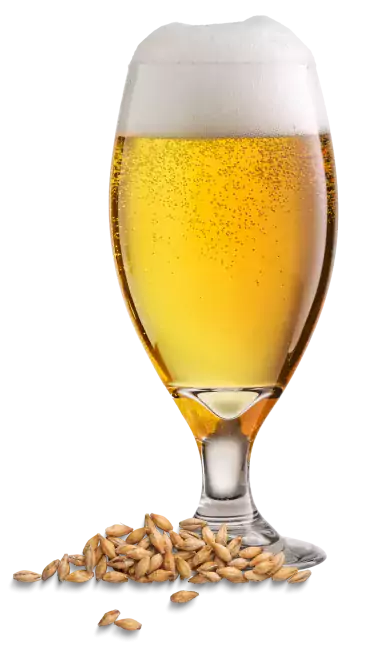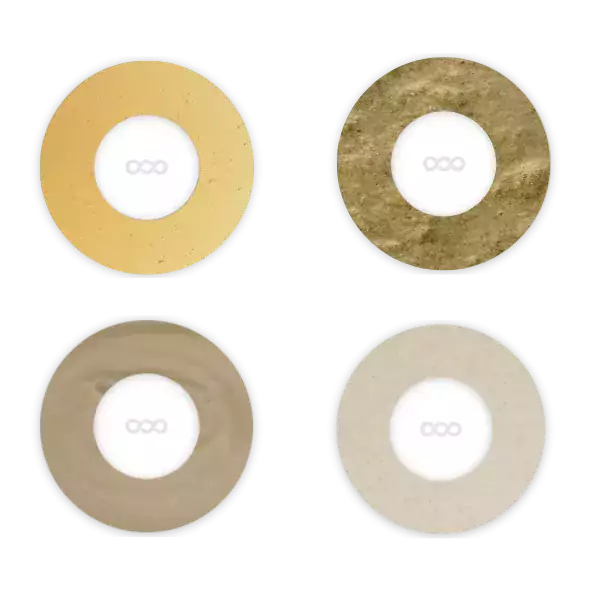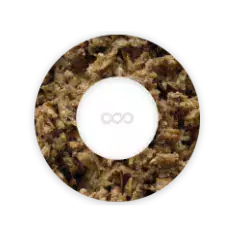Beer is the most popular alcoholic beverage in the world. To meet the enormous demand for beer, breweries need to brew incredible quantities of it.
The Netherlands alone produces almost two billion litres of beer. Various co-products are produced during the brewing process. These co-products are highly suitable for new areas of application, such as animal and insect feed and renewables (like sustainable energy). Common co-products produced during the beer brewing process include brewer's grain, brewer's yeast and feed beer. Other flows produced during or after the brewing process, such as beer waste, can likewise be used for new areas of application. This way, we can prevent the unnecessary loss of nutrients and reduce pointless food waste.
Brewery co-products can be used for a variety of purposes. Are you curious which co-products are useful to you?


Beer co-products for the Pig and Cattle Farming sectors
Brewery co-products are an excellent source of nutrition for pigs, dairy and beef cattle, chickens and goats. Brewer's grain is commonly used in the cattle farming sector. This is a high-protein product for dairy and beef cattle, and is also increasingly used to supplement pig rations. Brewer's yeast is high in protein and B vitamins and, like the tasty feed beer, it is a welcome addition to a pig's diet.

Beer co-products for Insects
Brewery co-products are also highly suitable for use in insect breeding. For instance, brewer's grain or a mixture of brewer's yeast and other co-products make for a great breeding ground for insects.

Beer co-products for Renewables
The production of beer also leads to material flows that are not suitable for human or animal consumption. These flows, such as beer waste, can be used to generate sustainable energy through fermentation. These flows are also highly suitable for use as fertile soil for growing various types of mushrooms, for instance.
The production of brewery co-products
Various processes are used to brew beer. Despite the variety of different beer types, the base brewing process is the same for all. These brewing processes result in various co-products, such as brewer's grain, brewer's yeast and feed beer.
Malting, milling and lautering
The first step of the brewing process is malting. In this process, dried grains, usually barley, are processed into (dried) germinated barley grains. The barley grains are first soaked in water, activating the germination process. The germination activates the enzymes in the starch. The germinated barley grains are then heated and dried. The resulting product is called malt. The next step is the milling process. The malt is ground, releasing the starch. The milled malt is dissolved in water to form a mash.
The mash is then filtered, a process referred to as lautering. This can be done with a filter bed, but pressure filters are also used. In this step, the coarse barley grains are separated from the mixture. The liquid substance is known as wort and is used for further stages of beer production. It forms the basis of the beer. The residue after filtering is called draff or brewer's grain. It's also known as press cake if processed using a pressure filter.
More information about brewer's grain
Fermentation
The wort is used for the next step of the brewing process, in which it is boiled. At this point, the hops are added, which give the beer its characteristic, bitter flavour and benefit its preservation. The wort is cooled to trigger the fermentation process. Once the wort has sufficiently cooled, the yeast is added. This results in immature, or green beer. Next, the yeast cells are separated from the green beer. The separated yeast cells are sometimes reused, but most of it is sold as a high-moisture animal feed for pigs (brewer's yeast).
More information about brewer's yeast
Bottling
At this stage, the beer undergoes a second fermentation process called lagering. This happens in sealed vats or tanks so the carbon dioxide can't escape and the liquid retains its bubbles. Afterwards, the beer is ready for bottling. Before being poured into the bottles, the beer is often filtered one more time, resulting in a neat, clear beverage.
The brewing process also results in beer that is not suitable for human consumption. An example of this is beer that does not meet the quality that the beer brand wants to offer the consumer. This beer has often already undergone the entire brewing process. These batches of ‘unsuitable’ beer arise during various stages of the production and logistic process. When a new line of beer is produced, for instance, the old beer in the lines is no longer suitable for bottling. Likewise, batches of beer may be returned. However, this beer is still highly suitable as a source of nutrition for pigs, and is sold as feed beer.
More information about feed beer
The brewing process also results in co-products that are not suitable for human or animal consumption. However, these flows, such as beer waste, can still be used to generate sustainable energy through fermentation, or they can be used as fertile soil for fungi and mushrooms, for instance.
More information about beer waste
View our brewery co-products
At Looop, we carry various brewery co-products.
Through international collaborations with breweries in the Netherlands, Germany and Belgium, we ensure that the raw materials required for beer brewing are not lost. Brewer's grain, feed beer, beer yeast and beer waste are given a new purpose in various areas of application.
Would you like more information about these co-products? Would you like to take a look at these products?

Are you curious as to which brewery co-products are suitable for your pig farm?
Our manager, Jasmijn, will be happy to help you!
Jasmijn van Wakeren
Quality, Nutrition & Sustainability Manager

Would you like more information about the brewery co-products for the cattle farming sector?
Our manager, Joost, will be happy to help you!
Joost van de Wijgert
Sales Manager Feed

Would you like to know which brewery co-products are suitable for insects?
Kelly will be happy to help you consider the various options!
Kelly Vermeer
Manager Strategic Business Development






